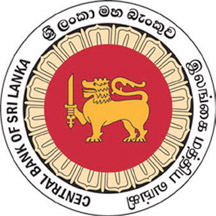CBSL reserve management profits highest in world for 2011
The Central Bank of Sri Lanka (CBSL) realised a massive profit of
US$430 million from its reserve management activities last year, CBSL
financial statements reveal.
 This profit on its portfolio had been made, even after providing for
the losses that it has suffered in the investment in Greek Government
Bonds. This profit on its portfolio had been made, even after providing for
the losses that it has suffered in the investment in Greek Government
Bonds.
According to research carried out by an expert team from the
University of Colombo, the foreign reserve profits earned by the CBSL,
of 6.6 percent for 2011, is the highest in the world in percentage terms
by any central bank in that year.
The research has also shown that the reserve management profits
earned by a majority of central banks worldwide was less than two
percent, and that very few central banks generated profits in excess of
four percent on their average reserves, mainly because 2011 was
extremely challenging for reserve management. The research further
revealed that the CBSL’s profits of US$430 million on its average
reserves of just US$ 6.5 billion was substantially higher, both in
absolute and percentage terms, than that earned by the US Federal
Reserve Bank in 2011.
In fact, the reserve management activities of the US Fed Reserve only
generated a profit of US$ 401 million on a reserve of US$42 billion or
just 0.9 percent, while the CBSL made a profit of US$ 430 million, or
6.6 percent from its reserve management activities.
An assessment of the reserve management activities of the CBSL in
recent years also revealed that, even in 2010, the CBSL earned its
second highest ever earnings of US$331 million, and that 2011 and 2012
have been the only 3 years in CBSL history where the reserve management
profits have exceeded US$ 200 million.
Reserve management experts have acknowledged that the CBSL’s decision
to invest in Greek bonds was probably based on the trade-off between
different risks faced, and the CBSL’s tolerance of a higher risk on a
very small part of its portfolio. Such a position is considered
reasonable since the investment in Greek Bonds was just 0.6 percent of
its portfolio.
In that regard, the experts pointed out that a higher risk tolerance
was acceptable, particularly in view of the substantial gains that had
been made by the Central Bank during 2010 and 2011, and due to the
reasonable expectation of earning a higher yield on an investment in
Greek bonds.
The experts have further noted that Greece was rated ‘B1’ by Moody’s
at the time CBSL invested in the Greek bonds, while Sri Lanka’s own
credit rating at the time was the same as that of Greece.
Further, Greece enjoyed the additional advantage of being a member of
the European Union, and consequently, being supported by the Triple A
rated European Financial Stability Mechanism.
The foreign reserve management profit percentages earned by selected
central Banks in 2011, is set out below:
|


